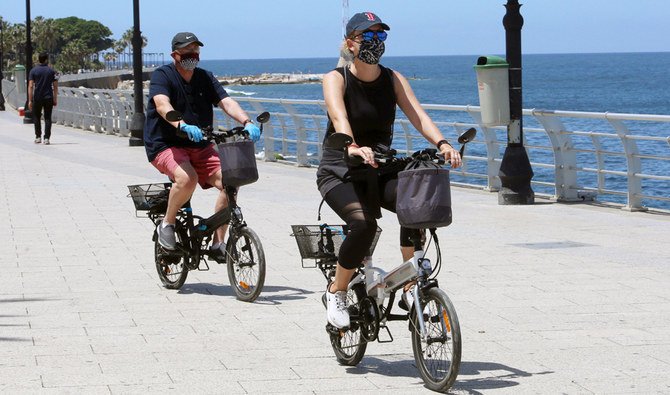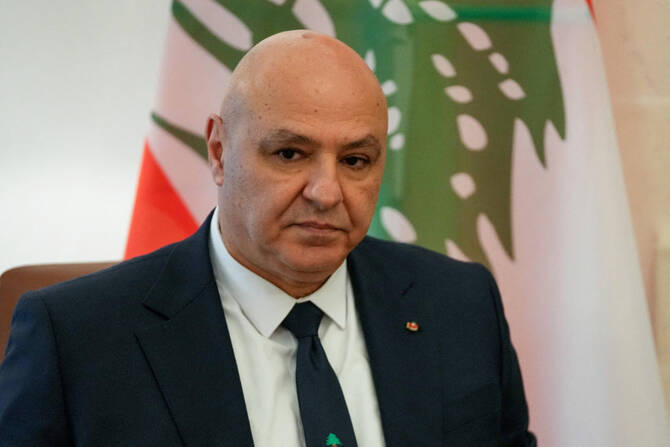BEIRUT: Lebanon eased restrictions on social distancing on Monday, allowing barbershops to open for haircuts for the first time in weeks.
Habib Khalifa, a 40-year-old salon owner in Beirut, told Arab News that he had received clients “who had not had a hair cut for 50 days — this is the first time in my career that I have received this number of men whose hair was so long. Some of them had misshapen (hair) because their wives gave them haircuts during home isolation!
“We applied strict preventive measures, and a rigorous sterilization process,” he added.
“Our work does not include shaving because it has not been included yet in the circulars for the gradual reduction of isolation procedures.”
Many restaurants have also reopened their doors, setting opening times between 9 a.m. and 9 p.m. The Ministry of Interior required that restaurants fill only 30 percent of their capacity, to maintain a safe distance between customers.
As with barbers, restaurants have struggled due to the collapse of the Lebanese pound.
Khalifa said: “Today I did not charge the clients with a higher price — they are unable to pay, nor am I able to keep the old prices because the prices of all the materials that I use have vastly increased.”
The high prices are due to the fact that the US dollar now has a purchase price of 3,900 Lebanese pounds ($2.56), and sells for LBP 4,200. Licensed money exchangers are in the second week of a strike in protest against several arrests for failure to comply with the price set by the Lebanese Central Bank, which values the dollar at LBP 3,200.
People stood in long queues in front of banks across Lebanon on Monday to receive their salaries in Lebanese pounds, at a time when banks themselves have been practicing “haircuts” on their deposits in dollars, in light of the of semi-bankruptcy of the state and financial institutions.
As a result of the collapse of the pound, many business owners have started to raise prices in line with the exchange rate.
The Gas Station Owners Syndicate has asked the minister of energy, Raymond GHajjar, to “fix the price of gasoline due to the heavy losses incurred by the owners of the stations.” The heads of workers’ union and distributors in the gas sector in Lebanon, meanwhile, have demanded royalties for the distribution of domestic gas be raised by LBP 3,000.
The government is awaiting the response of the International Monetary Fund (IMF) to an official request submitted by Beirut to start negotiations on what assistance the IMF can provide Lebanon to tackle its budget deficit, the balance of payments and other vital areas.
The proposals would see Lebanon receive up to $9 billion over several years, in addition to money from donor countries, the World Bank, and Arab and foreign funds that were promised at the Cedar Conference in 2018.
Donors have linked their contributions to reforms, the most important of which is to reduce waste and spending.
On Monday, more than 50 members of parliament gathered during the meeting of the finance and budget committee to listen to an explanation about the government’s reform plan, presented by Finance Minister Ghazi Wazni and Economy Minister Raoul Nehme.
Meanwhile Walid Jumblatt, president of the Progressive Socialist Party, said after his visit to President Michel Aoun on Monday, in light of the party’s dispute with the Free Patriotic Movement: “We seek to organize the conflict, and I am not trying to change the government in this climate of massive misfortune.”
Jumblatt added that “Lebanon’s former economy is finished; services are gone, and the whole world after the coronavirus will change. So will Lebanon.”
The Ministry of Health announced 3 new coronavirus disease cases on Monday, raising the total number of cases to 740. The new patients were all Lebanese returnees from abroad, and remain under home quarantine.






















